Newsletter Signup - Under Article / In Page
"*" indicates required fields
Besides struggling with ambitious New Year’s resolutions and post-holiday diets, January is a time where many of us re-examine our finances and budget for the year ahead. With money on the brain, we thought it would be a good time to do a roundup of Europe’s best-funded private biotechs.

With over €400M raised to date, TauRx Pharmaceuticals tops our list!
Headquartered in Aberdeen, TauRx Pharmaceuticals was founded in 2002 with the clear mission to improve the diagnosis, treatment and cure of neurodegenerative diseases caused by protein aggregation, with Alzheimer’s as its main focus.
The mission to develop novel tau aggregation inhibitors (TAIs) is based on pioneering research carried out by one of the company’s founders, which revealed abnormal fibers of tau protein inside nerve cells during Alzheimer’s, and that their aggregation into tau tangles correlates with the progression of dementia. TAIs function by dissolving existing tau aggregates and preventing the formation of new tau tangles.
TauRx’s lead compound, LMTX, inhibits tau and has shown promise for slowing Alzheimer’s progression. Despite a first Phase III failure in 2016, the results of a recently completed Phase III trial that involved more than 20 countries and almost 2,000 Alzheimer’s patients revealed that a twice-daily dose of just 4 mg (LMTX) significantly reduced neuron loss in the brain. LMTX also inhibits the aggregation of TPD-43 (behavioral variant frontotemporal dementia), synuclein (Parkinson’s disease), and huntingtin proteins (Huntington’s disease).
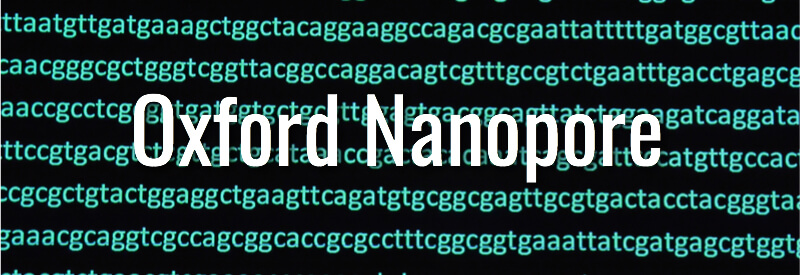
With 2016’s biggest fundraising round of €120M in the bag and just under €400M raised in total since its beginning in 2005, Oxford Nanopore takes second place on our list!
With the world’s first and only nanopore DNA sequencer, the MinION pocket sequencer, under their belt, UK-based Oxford Nanopore is on track to cause a full-blown revolution in the worldwide nucleic acid sequencing market.
With their nanopore sequencing technology, DNA strands are read directly in an electrical, single-molecule and label-free process. The R9-Series nanopore is impressively able to read more than one billion bases per 48-hour run with up to 97% accuracy. The MinION is an affordable, long-read device that brings easy real-time biological analyses to a wide range of applications in research, clinical, and educational institutions.
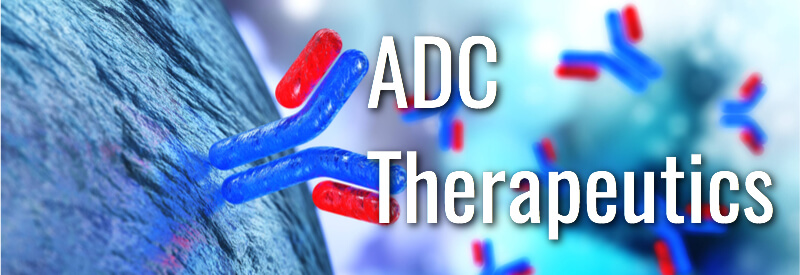
With almost €350M secured since 2011, ADC Therapeutics is our third best-funded European biotech. Established in Switzerland in 2011, ADC Therapeutics’ main focus is the development of novel antibody drug conjugates (ADCs) for the treatment of solid and blood cancers.
The company’s ADCs are an elegant combination of monoclonal antibodies with specificity for surface tumor antigens brought about by the activity of a new class of highly potent cytotoxins known as pyrrolobenzodiazepine (PBD) dimers. The monoclonal antibody targets tumor cells, where the conjugate is taken up and the PBD dimer released. The dimer then binds the minor groove of DNA to form toxic DNA interstrand cross-links, effectively blocking cell division and killing the cell. Importantly, PBD dimers don’t perturb DNA structure, allowing the cross-links to go unnoticed by cellular DNA repair pathways, resulting in prolonged anti-tumor activity even in the most refractory cancers.
The pipeline consists of 8 ADCs at various stages of development from in vivo proof-of-concept to Phase Ib. Indications under investigation include blood cancers such as Hodgkin’s and non-Hodgkin’s’ lymphoma, acute myeloid leukemia, and acute lymphoblastic leukemia, and solid cancers such as prostate, breast, lung and various cancers of the gastrointestinal tract.
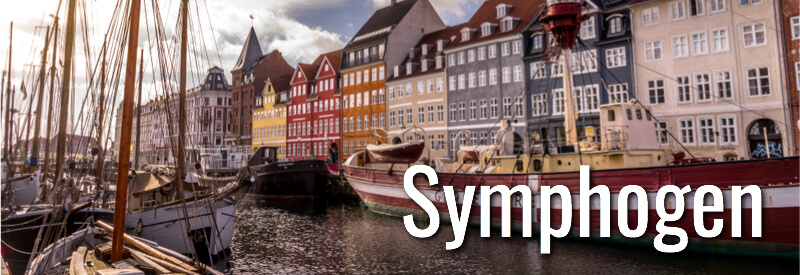
With an impressive €317M in funding since its inception in 2000, Symphogen earns the fourth position on our rundown. Symphogen was founded in Copenhagen in 2000, inspired by Danish blockbuster GenMab. Symphogen’s original vision was the development of an antibody cocktail (a symphony of antibodies) that would be more potent and have a broader activity than a single monoclonal antibody for the treatment of cancer and other diseases with significant unmet medical needs.
Fast forward to 2018, and the company now has more than 100 employees, and their main product Sym004 is in clinical development for the treatment of metastatic colorectal cancer (mCRC) and recurrent glioblastoma (GBM).
Sym004 targets the epidermal growth factor receptor (EGFR) and is a synergistic monoclonal antibody (mAb) mixture containing two recombinant mAbs that bind to different, non-overlapping epitopes of EGFR. In a unique mechanism of action that depends upon the presence of both mAbs, Symo004 induces rapid internalization and degradation of the EGFR, leading to its down-modulation and subsequent inhibition of cancer cell growth.
A Phase 2b trial for Sym004 in mCRC completed in December 2016 revealed compelling and clinically relevant outcomes for a well-defined patient subgroup. On the back of these results, the company is currently working with regulatory bodies to establish the development path for Sym004 as a therapy for mCRC patients who have previously responded to EGFR therapy. Sym004 is also undergoing a Phase II trial in patients with recurrent GBM.
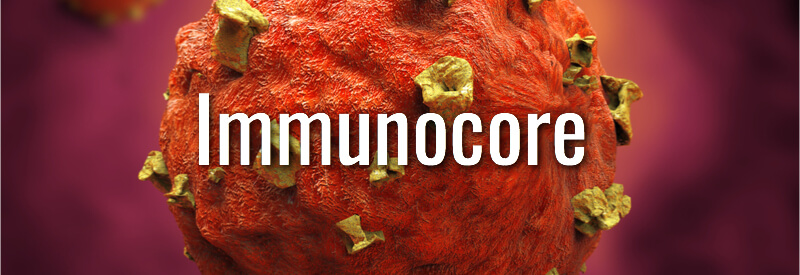
Since its dawn in 2008, Immunocore has already pocketed more than €290M in private funding, most of it coming from a single massive €235M round in 2015.
Headquartered in Oxford, UK, and with a workforce of almost 400, Immunocore aims to be the world’s leading T cell receptor (TCR) biotech company. With proprietary TCR technology, the company develops novel first-in-class biological therapies to treat a wide range of diseases including cancer, autoimmune diseases, and infectious diseases.
Immunocore’s programme, IMCgp100, targets the melanoma-associated antigen gp100, and is currently being assessed in pivotal monotherapy clinical trials for the treatment of metastatic uveal melanoma. This is an aggressive form of melanoma that has a poor prognosis and is resistant to checkpoint inhibitors and other novel therapies. Immunocore was granted orphan drug designation for IMCgp100 by the FDA in 2016. A combination trial in collaboration with AstraZeneca investigating the potential to treat cutaneous melanoma, by combining IMCgp100 with checkpoint inhibitors Imfinzi and tremelimumab, is currently ongoing.
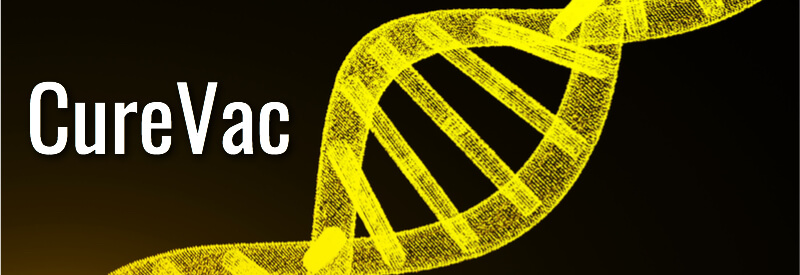
Founded in 2000, German-based biopharmaceutical company CureVac has since pocketed around €290M in private funding, with Bill & Melinda Gates Foundation among its lead investors.
CureVac was the first to successfully harness messenger RNA (mRNA) for medical purposes. CureVac’s principle is quite simple: “use natural mRNA as a data carrier to instruct the human body to produce its own proteins to fight a wide range of disease.”
The company was founded on the back of some unexpected findings made during the doctoral research of Ingmar Hoerr, one of the company’s founders, which challenged some then-established scientific beliefs about RNA. Contrary to the belief that RNA was a very unstable biomolecule, Hoerr found that mRNA could be administered directly into tissues as a vaccine or therapeutic agent once its biological properties were appropriately modified, and complicated formulations or molecular packaging were not required to achieve these results. These findings unmasked the great potential of RNA to treat diseases and generate prophylactic immunity.
Although the potential of the company’s unique RNA-based therapy was demonstrated in preclinical and clinical studies, their lead candidate for prostate cancer failed in a recently completed Phase II study. These findings have not crushed hopes entirely though. Instead, they have spurred an increased focus on RNA-based therapy in combination with other therapies e.g., checkpoint inhibitors.
The company has an impressive pipeline boasting an RNA-based rabies vaccine (CV7201) with glowing data from a first-in-human Phase I trial, as well as a number of preclinical cancer studies with CV9104 or their other candidate CV9202 in combination with checkpoint inhibitors, chemotherapy and radiation.
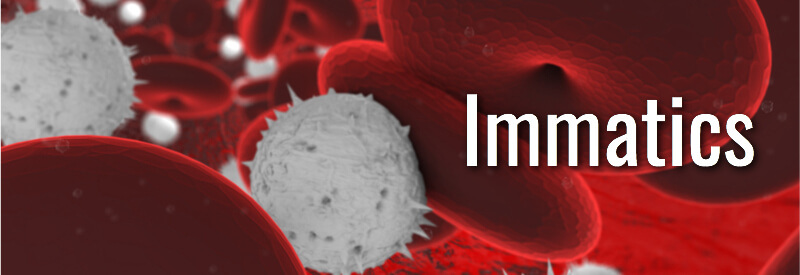
Immatics has secured €225M in private funding to date. This clinical stage cancer immunotherapy company, founded as a spin-out from the University of Tübingen, Germany in 2000. The company’s major goal is to use fundamental discoveries to develop and commercialize groundbreaking immunotherapies as novel cancer treatments.
The current pipeline encompasses both adoptive cell therapy (ADT) and bispecific TCR molecules). ACT involves the use natural or engineered T cells to fight cancer, while Bispecific T-Cell Receptor (TCR) molecules have the capability to redirect and activate an individual’s T-cell response towards cancer cells that express specific tumor targets.
Immatics US, Inc. was launched in collaboration with the University of Texas MD Anderson Cancer Center in 2015, with the goal to become a world leader in ACT for the treatment of multiple tumor types.
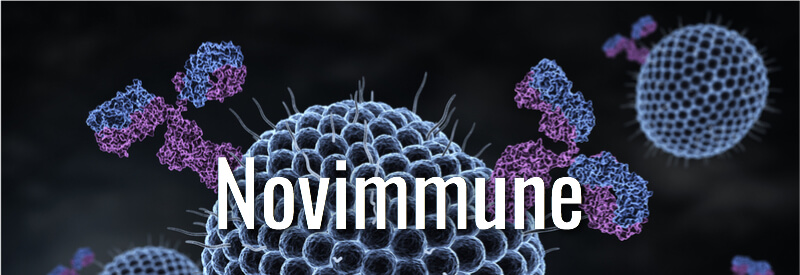
Swiss biopharmaceutical company Novimmune was founded in 1998 and has since grown in size to a 140-strong workforce, raising more than €220M in private funding to date. The company’s core focus is the discovery and development of new antibody-based drugs for the treatment of cancer, immune disorders, and inflammatory diseases.
Novimmune’s innovation lies in their monoclonal and bispecific antibody generation platforms designed to streamline the identification, production, and characterization of human antibodies.
The clinical pipeline currently consists of four candidates, and the most advanced one, emapalumab, a fully human anti-IFNγ monoclonal antibody, has been granted Breakthrough Therapy designation by the FDA and eligibility for Priority Medicine by the European Medicines Agency. Emapalumab is in late-stage clinical development for the treatment of Hemophagocytic Lymphohistiocytosis (HLH), a life-threatening disease marked by severe immune activation that occurs predominantly in children. The lack of an approved drug for HLH creates an urgent need for new therapeutic efforts.
Novimmune is in active partnerships with the likes of Genentech, Tiziana Life Sciences, and Shire to further advance and bring their novel antibody-based drugs to the clinic.
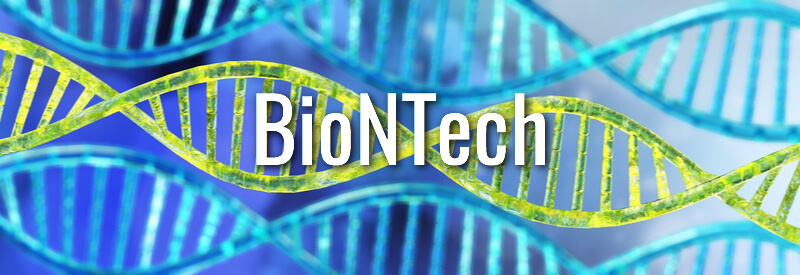
German-founded BioNTech entered 2018 with a financial boost to the tune of €225M in Series A funding, a record amount in Germany for such an early funding round. The company joined the European Biotech scene in 2008, and they are now one of Europe’s largest privately held biopharmaceutical companies, pioneering the development of individualized therapies for cancer and other diseases.
A close competitor to CureVac, BioNTech aims to develop individualized mRNA-based cancer vaccines and was the first to run a clinical trial with this new and promising technology, yielding impressive results in patients with relapsing melanoma.
mRNA therapy isn’t the only string in BioNTech’s bow, however. The company seems to embrace all facets of immunotherapy, funding also the development of CAR-T cell therapy and T-cell receptor technologies. Both approaches have shown great promise for cancer treatment, with the two first CAR-T therapies launched into the market in 2017. To realize their goals, BioNTech has partnered up with some of the big players within cancer immunotherapy, including Genentech, Sanofi, Bayer, and Eli Lilly.

London-based Cell Medica has secured over €150M in private funding since 2006, earning them the final spot in our rundown of Europe’s best-funded biotechs. The company develops and commercializes personalized immunotherapies for the treatment of infectious disease and cancer.
Their CAR technology can modify subsets of natural killer T (NKT) cells to specifically target and kill tumor cells via cell surface molecules expressed on their surfaces, while their dominant T cell receptor (TCR) technology ensures high levels of expression of optimized T cell receptors on the surfaces of modified T cells. These TCRs are capable of recognizing antigens originating from proteins expressed in any cell compartment, including intracellular proteins, which are not accessible to CARs.
Cell Medica’s combination of CAR-T and TCR-based technologies allows them to target almost any cancer antigen whether cell-surface associated or intracellular, greatly expanding their potential to treat a wide range of cancers. Their current pipeline boasts 7 candidates at various stages of clinical development, and their most advanced candidate CMD-003, received Orphan Drug status from the FDA in 2015, for the treatment of Epstein-Barr Virus-positive non-Hodgkin’s lymphoma. The company also has candidates under development for the treatment of neuroblastoma, glioblastoma, liver cancer, hematological cancers, a range of gastrointestinal cancers, and others.
Exciting Times Ahead for Immunotherapy
That was our roundup! It’s probably no surprise to see immunotherapy and personalized medicine approaches dominating our list. Only time will tell how these novel and personalized approaches to medicine will benefit the millions of patients worldwide suffering from cancer, immune disorders, and other indications for which immunotherapy might be the light at the end of the tunnel. We are certainly excited about the future!
Karen O’Hanlon Cohrt is a Science Writer and Editor with a PhD in biotechnology from Maynooth University, Ireland. She can be found on Twitter @KarenOHCohrt and you can find some of her other articles on her portfolio.
Images via Naparat, Andrii Vodolazhskyi, Sergei Drozd, ustas7777777, wernermuellerschell, Giovanni Cancemi, Tatiana Shepeleva, Immersion Imagery, FastMotion,






